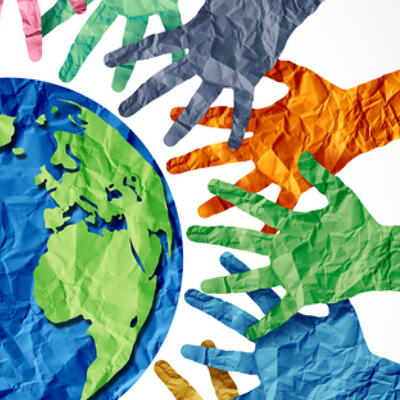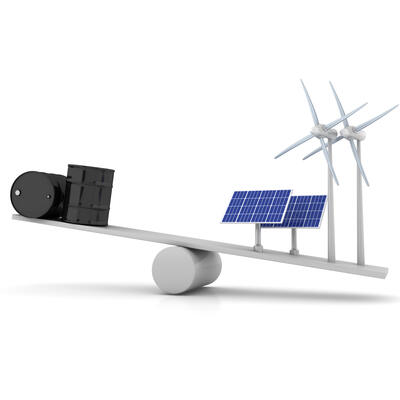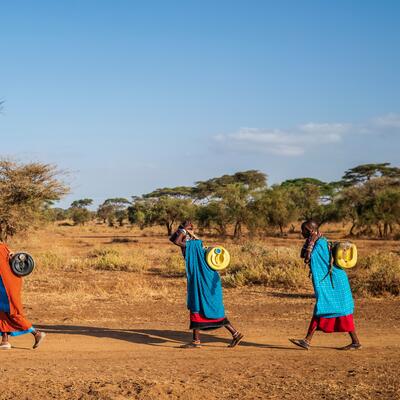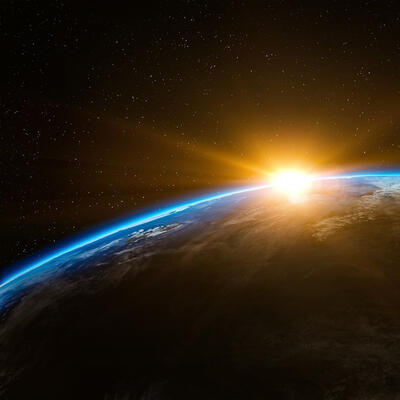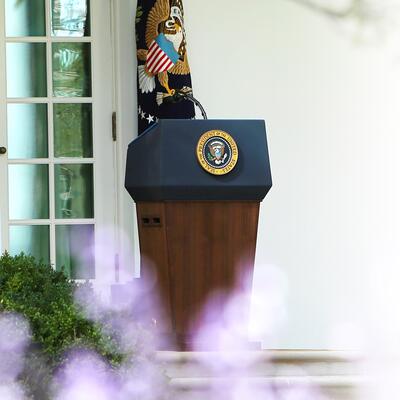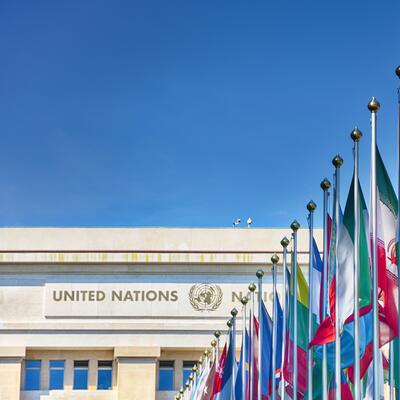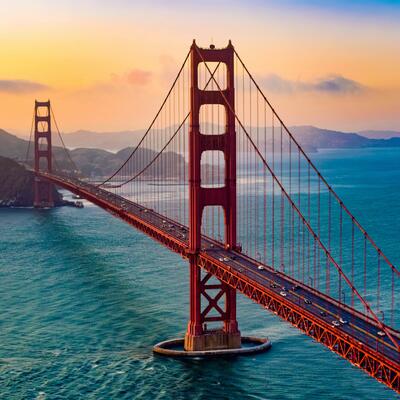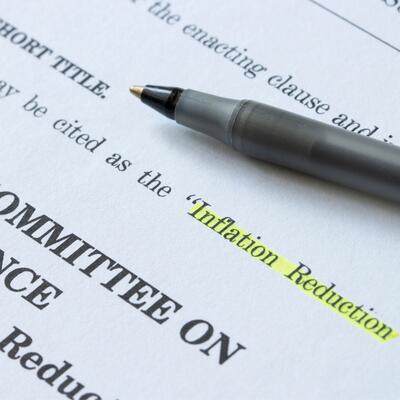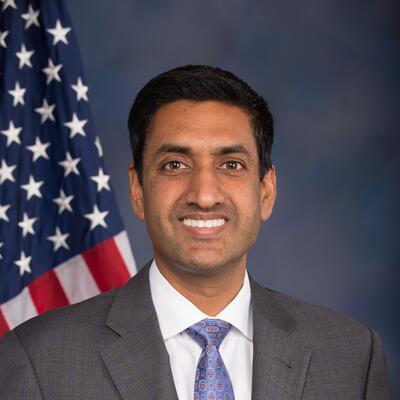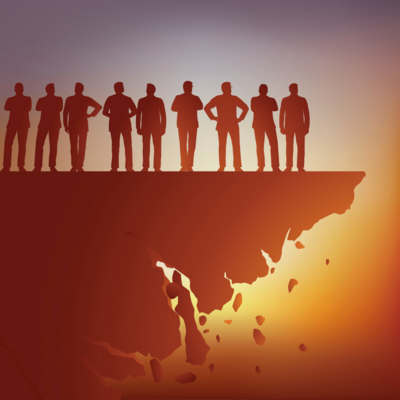
On the Ground at COP28: What’s at Stake with the Global Stocktake?
Guests
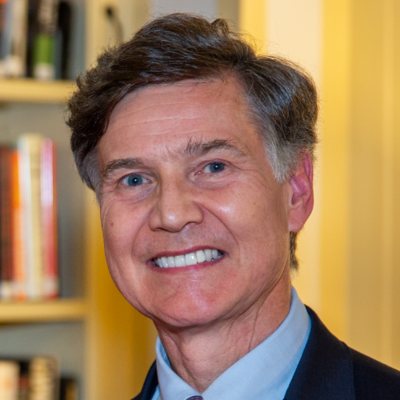
Dan Esty
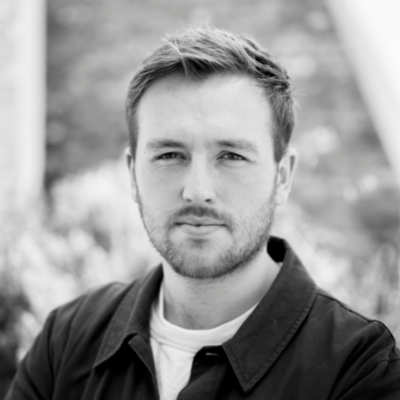
Ben Stockton
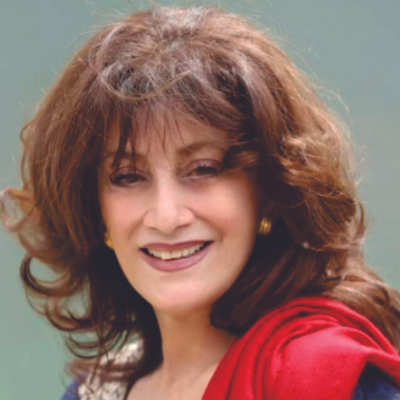
Aisha Khan
Summary
The 28th annual Conference of the Parties, COP28, opens this week in Dubai. For the 28th time, the nations of the world have gathered to see what progress they can make on addressing the increasingly global climate crisis. This year’s COP marks the first “Global Stocktake,” an assessment of how the nations of the world are doing compared to the emissions-cutting commitments they made at the 2015 Paris Accords. But countries small and large haven’t decarbonized at the rate they’ve promised.
“We're not on track to get to net zero greenhouse gas emissions by mid-century. In fact, we're very far off track,” says Dan Esty, professor of environmental law and policy at Yale.
Every year there is renewed hope that collective international peer pressure will help accomplish major climate policy goals.
“A problem like climate change is inescapably global in scope, you cannot get it solved by one country going on its own,” Esty says.
But after three decades we still haven’t taken the collective action necessary. And this year’s conference is being hosted by the United Arab Emirates, a major oil and gas producing nation, and led by an industry executive, Sultan Al Jaber, which many consider to be a conflict of interest. Al Gore went so far as to call Al Jaber's presidency a sign that the fossil fuel industry has “brazenly seized control of the COP process.”
Al Jaber heads Abu Dhabi National Oil Company (ADNOC), which is expanding its operations.
“For a lot of people the idea of a CEO being president of a COP would be completely nonsensical. It's almost beyond belief that this would happen,” says Ben Stockton, an investigative reporter working for the Center for Climate Reporting. In an article he wrote with Amy Westervelt for “The Intercept,” he made the case that Al Jaber's reputation has been shaped by some of the world's most influential public relations companies, and they've used these roles both as head of ADNOC and UAE's renewable energy company, Masdar, to make him the face of the country's fight against climate change.
Stockton says it’s noteworthy that Al Jaber has the support of a number of world leaders, including those in climate diplomacy. “Namely, John Kerry, who has come out in support of Al Jaber's presidency, despite these claims of conflict of interest.”
In a way, having an oil executive leading COP28 means that certain conversations can't and won't be avoided. Oil-producing countries in the Persian Gulf region see the West as hypocritical for pushing to phase out fossil fuel production even as they continue to use those same fuels to further their own prosperity. Meanwhile, environmentalists in the West see oil-producing states like the UAE as having a conflict of interest for even hosting an international climate conference.
At last year’s climate summit, COP27, rich nations for the first time agreed to create a loss and damage fund. The idea is to help poorer nations who have not contributed much to global greenhouse gas emissions weather the increasingly severe impacts of climate disruption – bigger floods, higher sea levels, more intense storms. Aisha Khan, chief executive of the Civil Society Coalition for Climate Change in Pakistan, says there was a lot of euphoria when the loss and damage fund was finally accepted. But since then, “The divide between the developed and developing countries has increased because of the resistance from the developed countries to own responsibility for emissions and provide support for loss and damage at the scale that is needed to everyone,” she says.
“We need to shift people's focus from thinking that climate change is some long term deterministic event that will unpack slowly. It is already unpacking. It is already affecting the lives of people in many parts of the world,” Khan says. “We have to start making people see that it's related directly to your food, water, energy security, it's connected to lives, livelihoods, it is connected to the future of the next generation. Because at some point or the other, it's going to catch up with everyone.”
This episode features a segment from Contributing Reporter Rabiya Jaffrey.
Episode Highlights
2:15 Reporting from COP28
5:00 Sultan Al Jaber’s opening remarks
7:00 Ben Stockton on Al Jaber’s PR campaign for COP president
13:40 How Gulf State residents feel about Western criticism of UAE hosting COP28
20:00 Dan Etsy reviews history of COP from 1992 to today
28:00 Impact of 2015 Paris Accords
35:20 Looking for signs of progress at COP
42:00 Aisha Khan on devastation Pakistan flooding
45:33 Need to fund loss and damage for developing countries
49:30 “Time for an Honest Stocktake”
Resources From This Episode (3)
Full Transcript
Note: Transcripts are generated using a combination of automated software and human transcribers and may contain errors. Please check the actual audio before quoting it.
Greg Dalton: From COP 28 in Dubai, I’m Greg Dalton.
Austin Colón: I’m Austin Colón.
Greg Dalton: And this is Climate One.
Greg Dalton: [introduce and welcome Austin on-air]
Austin Colón: [audio version of a thank-you bow and hat tip/ “good to be with you, Greg”]
COP 28 is the 28th “Conference of Parties - to the United Nations Framework Convention on Climate Change - or UN F triple C.
Greg Dalton: The UN loves their abbreviations. This is the climate Super Bowl.
Austin Colón: So this is the UNFCCC’s 28th annual climate summit - which means the nations of the world have been talking about international agreements on climate for longer than many of our listeners have been alive.
Greg Dalton: Yeah, And that sounds depressing. But I’ve been covering this for a long time, and progress has been made.
Austin Colón: Too slowly, but sure.
Greg Dalton: Sure. When this whole process was set up in Rio De Janeiro back in 1992, the world was on track for 4 or 5 degrees Celsius of heating above pre-industrial average. Since then we have progressed. The Paris climate agreement was a big step.
Austin Colón: – and technological advances that have brought down the cost of solar, wind, and batteries –
Greg Dalton: And a basket of policies in the US and Europe are spurring clean energy innovation and manufacturing. So rather than the trajectory of 4 to 5 degrees of heating we’re now on track for “only” about 2.6 to 2.9 degrees of heating.
Austin Colón: I heard your air quotes around “only.” And let’s be real, 2.6 degrees is still a death sentence for millions of people. And we’re already approaching 1.5 degrees of heating so far and think of ALL the severe floods, fires and amplified weather events we’ve seen in just the last couple years.
Greg Dalton: I know. I know. All the progress I’ve talked about is good, but nowhere near enough. Here’s what Simon Stiell, Executive Secretary of the UNFCCC had to say at the opening of this year’s conference:
Simon Stiell: We’ve got two options. Firstly – we can note the lack of progress, tweaking our current best practices and encourage ourselves to do more ‘at some other point in time’. Or: We decide at what point we will have made everyone on the planet safe and resilient. We decide to fund this transition properly including the response to loss and damage. And we decide to commit to a new energy system. If we do not signal the terminal decline of the fossil fuel era as we know it, we welcome our own terminal decline. And we choose to pay with people’s lives.
Greg Dalton: The terminal decline of fossil fuels is a simple and powerful statement. This is not complicated. People need to stop burning fossil fuels. Austin, this is your second time at one of these global gatherings. What did you hear?
Austin Colón: [responds] “choose to pay with people’s lives”
Greg Dalton: This year’s COP marks the first “Global Stocktake,” an assessment of country progress toward the emission reductions they pledged to make in Paris.
Austin Colón: Meanwhile, Emissions and temperatures are still rising. It’s also probably the hottest it’s been in 125,000 years.
Greg Dalton: It’s hard to get my head around that timeframe. Before we go on, There’s one other big thing we need to talk about: This year’s conference is being held in Dubai, in the United Arab Emirates, or UAE. The UAE is a major producer of oil and gas. UN protocol holds that whatever country hosts this event gets to choose the conference’s president. In this case, the UAE selected Sultan Ahmed Al Jaber [Al JAHb-air].
Austin Colón: Al Jaber was a particularly controversial pick because he’s also the head of ADNOC, the country’s national oil company, which is expanding its operations. In May, 133 members of the U.S. Congress and European Parliament called for Al Jabbar to be removed. Al Gore went so far as to call Al Jabbar's presidency a sign that the fossil fuel industry has “brazenly seized control of the COP process.”
Greg Dalton: Yeah. There are some real tensions here. To be fair, Al Jaber also heads MASDAR, the country's renewable energy arm - though there have been some questions about how much the UAE has really prioritized renewables. More about that in a moment.
Austin Colón: Here’s what Sultan Al Jaber had to say in his opening address:
Sultan Ahmed Al Jaber: as I have been saying, we must look for ways and ensure the inclusion of the role of fossil fuels. I know there are strong views about the idea of including language on fossil fuels and renewables in the negotiated text. We collectively have the power to do something unprecedented. In fact, we have no choice but to go the very unconventional way. I ask you all to work together. Be flexible.
Austin Colón: So Greg, what do you think he’s suggesting there?
Greg Dalton: He’s saying what many business people say - that fossil fuels can’t be turned off overnight. They are part of the global economy and companies and countries that produce them need to be part of these UN negotiations. Those companies understandably want to be present when their future is being discussed.
Sultan al Jaber went on to push for transitioning away from coal plants that don’t capture and store carbon pollution. The problem with that is carbon capture is too expensive and not really happening anywhere.
Austin Colón: Right. And UAE doesn’t have any coal so it’s easy for him to target the other fossil fuel.
Greg Dalton: Nothing in Al Jaber’s speech did anything to alleviate concerns about the Sultan’s inherent conflict of interest.
Austin Colón: Just this week, the Center for Climate Reporting released a story about Al Jaber pushing his country’s oil and gas exports DURING climate meetings. The story, by Ben Stockton, was reported in partnership with the BBC.
Greg Dalton: The fact that Al Jabar was having side conversations is not surprising. But the story has elevated calls to limit the role of fossil fuel companies in these conferences.
Austin Colón: Ariana Brocious spoke with Ben Stockton before his most recent article published.
Greg Dalton: They talked about an earlier, companion piece he wrote with Amy Westervelt for The Intercept. In that story he made the case that Al Jaber's reputation has been shaped by some of the world's most influential PR companies.
Ben Stockton: For a lot of people the idea of a CEO being president of a COP would be completely nonsensical. It's almost beyond belief that this would happen. But we've ended up in a situation where somebody is doing that. And not only is somebody doing that, they are doing that with the support of a number of world leaders, and very important figures in climate diplomacy. Namely, you know, John Kerry, who has come out in support of Al Jaber's presidency, despite these claims of conflict of interest. And so I think the role that these PR agencies have played has been really to kind of shape his image on the international stage.
Ariana Brocious: So, you know, a lot of people who are in the public eye have help shaping their public image. Is there something particularly problematic with him doing this while gearing up for the role as COP president?
Ben Stockton: Yeah, I think obviously that it is common for people to hire PR agencies to help with this work. I think this is a particularly sensitive topic. The need to phase down and phase out fossil fuels is becoming increasingly urgent and this is a vital COP presidency, COP 28 is really seen as a turning point and a critical moment for, for the world and its fight against climate change. And he has been legitimized by these PR agencies. He has used them to get testimonies of support from people around the world. And I don't think it really would have been possible for him to hold this position without those PR agencies. And I think one thing that surprised me when I started digging into this was just how far back some of this stuff goes.
This has not been just a year of PR work. Since he was appointed COP president, it's not even been two years of PR work since the UAE was chosen to host COP 28. This has been 15 years from the time that Al Jaber took over Masdar in 2006, right up to the current day, really working to get him alongside influential figures, bringing people to the UAE to see what the UAE is doing. And really kind of legitimizing his role on the world stage as the UAE's face in the fight against climate change.
Ariana Brocious: So to that point, much of your article lays out the extent to which both ADNOC, which is the national oil company, and Masdar, the country's renewable energy arm, have under-delivered on their promises to develop the country's renewable resources. So do you think that those promises were part of this PR campaign all along, or do you think that Al Jaber has a genuine interest to lead his country on climate solutions?
Ben Stockton: It's difficult to really get inside the mind of Al Jaber and kind of assess his commitment to this cause. I think he did have a very unusual role when he took over Masdar in 2006, Masdar being the renewable energy company, it was brand new at that point, it was a very small team and it really did feel like a step change for the UAE to say, okay, we're going to do this and we're going to be kind of the leaders in the kind of petro state world of moving away from oil. And going towards renewable energy. And so it did feel very kind of revolutionary at that time. but while we can't get inside the mind of Al Jaber, we can assess what's been done publicly. And I think, you know, what, what we found during reporting out this story is that really the kind of progress that Masdar made in terms of the capacity that they were building in renewable energy was very, very slow over the first 15 years of its existence. And actually, you know, we've seen the renewable energy capacity that they've been reporting really, increase exponentially within the last couple of years, which obviously coincided with the UAE's COP28 bid, and the work that they've been doing. And so, I think there are definitely some questions there about how much this is being used as a PR strategy. I know from speaking to people who have worked with him that he is very meticulous about his image. And really likes the role of the PR agencies in his work and making sure that things are being communicated externally about the work that he's doing.
Ariana Brocious: I think there's a spectrum of opinion on how involved oil and gas as an industry should be in the transition to a fossil free future. And there are some who believe that that simply can't happen without the involvement of oil companies, that they have this expertise and resources and we need them at the table. There are others who disagree, notably like Christiana Figueres, who recently said, there's no way, we're just going to have to, you know, cut ties and go independently. What do you think about the argument that maybe, , Sultan Al Jabbar is actually the perfect person to lead COP28 and get people from both sides of the table going the same direction?
Ben Stockton: Yeah, I mean, on that I think Figueres is really interesting because she is someone who obviously for a long time advocated for oil and gas to be at the table and for the fossil fuel industry to feel like they're part of a solution. I think what's slightly different about the question with Al Jaber is it's not just having the fossil fuel industry at the table. It's chairing the meeting. It's deciding what's on the agenda. You know, the outsized influence of the fossil fuel industry at COPs, even before Al Jaber was announced as COP 28 president, there's been a lot of concern about that. He sees himself as the ideal candidate, like you said, someone who has a foot in both camps can really bring the oil and gas industry along. And if, if this COP turns out to be, a great step in that direction, then, we'll all pat him on the back and say congratulations, but so far he hasn't necessarily shown that he's able to do that.
Ariana Brocious: Ben Stockton is an investigative reporter working for the Center for Climate Reporting. Ben, thanks a lot for joining us on Climate One.
Ben Stockton: Thanks for having me.
Ariana Brocious: In a way, having an oil exec leading COP 28 means that certain conversations can't and won't be avoided. People from all over the world are gathered in Dubai... and they're saying the quiet part out loud. Climate One correspondent Rabiya Jaffrey has this report:
Rabiya (track): Oil-producing countries in the Gulf region see the West as hypocritical for pushing to phase out fossil fuel production even as they continue to use those same fuels to further their own prosperity. Meanwhile, environmentalists in the West see oil-producing states like the UAE as having a conflict of interest for even hosting an international climate conference. So how can these two sides engage in meaningful dialogue?
Megha: It is valid to question it. Is the UAE perfect? Are all Gulf states, or any country for that matter, perfect?
Rabiya (track): That’s an Indian journalist I’ll call Megha. She’s lived in Dubai for most of her life, and she asked to stay anonymous so she could feel free to speak her mind.
Megha: I mean, we wouldn't be having this conference, would we, if everyone had kind of just got on with it, solved the problem, fixed the climate crisis and moved on.
Rabiya (track): Megha acknowledges the criticism from the West but questions their selective outrage.
Megha: The way the West is critical of this as if they are all invested in doing something about this. While over here, we don't care.
Rabiya (track): Climate change has presented distinct challenges for the Gulf Arab countries, including rising temperatures, prolonged droughts, sea-level rise, and extreme weather events. Many Gulf states already see temperatures rising above 104 degrees Fahrenheit in the summer, and several scientific studies indicate that much of the region is in danger of becoming uninhabitable should global temperatures continue to rise.
Megda: We already live in quite harsh climate conditions, before anyone was even talking about a climate crisis or global warming, we have more reason to solve and make changes, simply because we need to continue living here.
Hiba: No matter how much you care about your own state, climate change is going to affect you, so you’re going to care about it anyway.
Rabiya (track): That's a local youth climate activist I'll call Hiba. She says that even to her, it seems perfectly reasonable for her country to continue producing oil to maintain their economic growth. Westerners, on the other hand…
Hiba: They have more opportunities to become sustainable. But when you have a country that's built on oil, it's tougher to become completely oil free, let's say, by 2030.
Megha: I think the criticism needs to be more balanced and more aware from this broader view. And they're users of it, too.
Rabiya (track): And not just users of fossil fuels. Western nations led the exploration and extraction efforts here in the last century - and got rich in the process, as did the Gulf States. At the same time, pressure from the West has had an effect -- though the governments here wouldn't call it pressure.
Alex: For them, it would be more of a reminder. They don't like to be bullied or pressured or coerced.
Rabiya (track): That's a former UAE government worker and current academic I'll call Alex.
Alex: But yeah, if we will call it pressure. I think it has led to certain tangible effects.
Rabiya (track): Alex says that can be seen in the evolution of national and subnational institutions that now have an additional focus on environmental and climate related work, which was not the case a decade ago. But he says there are other factors too:
Alex: It's not like, you know, they woke up because the West kind of like knocked on their door. it's more of a global ambition as a small state to position themselves. They know it's important. But I think they just found the perfect time to capitalize on such an agenda and that's why they're rapidly prioritizing it much more now than in the past.
Rabiya (track): Youth climate activist Hiba sees other reasons to hope the UAE could lead this climate summit to a successful outcome.
Hiba: the UAE always wants to be the best in everything. They want to have the tallest building and all …So they obviously also don't want this COP to fail. And that's the one thing that's keeping me hopeful.
Rabiya (track): As this international climate summit gets underway in Dubai, people around the world are waiting to see if the pressure to have a successful outcome for all will be enough to overcome each country’s self-interest.
For Climate One, I’m Rabiya Jaffrey.
Ariana Brocious: Climate One is on the ground at COP28 and will be exploring the major themes, and bringing you critical conversations. Stay up to date by subscribing to our podcast wherever you listen. Please help us get people talking more about climate by giving us a rating or review. You can do it right now on your device. You can also help by sending a link to this episode to a friend. On our new website you can create and share playlists focused on topics including food, energy, EVs, activism.
Coming up, we travel back in time to the very first COP... when talking about climate wasn't contentious.
Dan Esty: And it is a remarkable moment to recall when the U. S. actually was able to do things, important, big things, internationally important things, on a bipartisan basis.
Ariana Brocious: That’s up next, when Climate One continues.
Ariana Brocious: This is Climate One. I’m Ariana Brocious. It’s fair to wonder why, after three decades, we still haven’t taken the collective action necessary to address the climate crisis. And it’s equally fair to wonder why diplomats continue to bother going to the annual international climate conference, called COP, to participate in what Greta Thunberg famously called “blah, blah, blah.” And yet - as Greg Dalton mentioned at the top of the show – progress HAS been made. Ahead of this year’s conference in Dubai, Greg chatted with Yale professor of environmental law and policy, Dan Esty. He worked in the first George Bush administration and was there at the very beginning of the whole COP process – the historical Earth Summit in Rio de Janeiro.
Greg Dalton: Dan, 1992, the world came together and said, we have a problem. We need to fix it. You and others helped convince the first president Bush to go. What was it like for you personally to be there at Rio in 92?
Dan Esty: Well, it was an extraordinary moment, it was at the time the largest gathering of world leaders that had ever occurred, and something like 120 presidents and prime ministers flew, in almost all cases, long distances to get to Rio de Janeiro. And there was a sense at that moment that the world was beginning anew in fundamental ways. We had seen the breakdown of the Soviet Union, the Cold War had largely come to an end. There was a lot of talk about new space on the global policy agenda for issues like, sustainable development. And, of course, we were at that moment gathered in Rio, on the heels of sustainable development really emerging as a framework, launched by the Brundtland Commission, and their report called Our Common Future. So it was a very special moment of optimism and a sense of opportunity that the world could be made new and different and better.
Greg Dalton: Right. And we heard terms like New World Order, the end of history, those sorts of things. Shortly after Rio, in the mid 90s, the empire struck back. Fossil fuel companies and companies like the auto companies that rely on fossil fuels formed the Global Climate Coalition. They started to really push back. What do you remember from that moment when industry which had been kind of passive or supportive until that point, really changed their strategy?
Dan Esty: So if I can take you back just one second, Greg, because when we all came home from Rio, after this moment in June of 1992, there was, of course, the question of would the United States ratify this, U.N. agreement that had been reached and signed by President Bush in Rio de Janeiro. And without putting you to a test that I sometimes give my students, it's important to recall what the vote was in the United States Senate on that. And again, I won't make you try to guess.
Greg Dalton: Not what would happen today, I'm sure.
Dan Esty: The actual answer is there was no vote taken. It went through by unanimous consent. And it is a remarkable moment to recall when the U. S. actually was able to do things, important, big things, internationally important things, on a bipartisan basis.
So before turning to your question about how suddenly the world breaks down in the mid 90s, I think it is worth remembering that this early 1990s kind of moment was something quite remarkable and something now terribly lost. And I think a real loss to our society that we can't bring ourselves together to work on these absolutely essential, big, kind of fundamental elements of what life is going to be like on our planet going forward.
Greg Dalton: Yeah, thanks for pointing that out.
Dan Esty: So to turn to your question, about the middle 1990s, of course Bill Clinton is now the president and we begin to see environment broadly and climate change in particular emerge as a wedge issue. Republicans on one side very doubtful about whether this is worth taking seriously, Republicans and I think pushed by business communities across the country begin to cast doubt on on the science and Democrats begin to say, No, this is a fundamental issue of essential importance, and we do really have a big breakdown in terms of the consensus that was present at that special moment in the early 1990s.
So I think the empire does strike back, business interests, particularly big fossil fuel interests are very hard hitting in their critique, in their commentary on what President Clinton is suggesting we do, and of course, Vice President Gore, suggesting we do. And as a result, there is a real fracture in the American political scene around climate change in particular.
Greg Dalton: Right, and the energy tax, or the BTU tax, is one reason why the Democrats lost the House for the first time in 50 years. Newt Gingrich comes in with his contract for America, also around that time. You know, I had just lived in China, which was opening up to the world, the prevailing thought that I shared, and I don't know if you did, was that bringing China into the community of nations was a good thing, get them into the WTO, economically liberalize, and then the political system might liberalize. Didn't work out that way, and so what was the impact of bringing China in, and on emissions?
Dan Esty: Well, first of all, your instinct was right in several regards. A problem like climate change is inescapably global in scope, you cannot get it solved one country going on it on its own. This is a challenge because as we know from the science, the greenhouse gas emissions released anywhere blanket the earth. So it was over the long term quite right to say that we needed China in the game with us if we were to be successful in responding to climate change. And there was a broader theory advanced by the Clinton administration, and I think it's turned out to be wrong. And that was if we could get China into the World Trade Organization, integrated economically with Western nations, they would become more like us. And I think that theory seemed correct for perhaps a decade and has gone badly wrong, in the later Xi era. And I think we currently can't have any confidence that there is that kind of convergence occurring. And yet your initial instinct is still right. It's very hard to imagine a long term successful response to climate change, this global problem that requires everybody to be involved if the world system breaks into two competing camps.
Greg Dalton: In 2007, Al Gore wins the Nobel Prize with the IPCC scientists, a big report has just come out. Seems to be a moment, that's certainly when I came into climate as a job and my awareness was awakened. Climate breaks into the mainstream. What were your thoughts and feelings then, at that moment, seeing Al Gore receive the Nobel Peace Prize and the public awareness that climate received then in 2007?
Dan Esty: I did celebrate the moment, And I do think Al Gore deserves enormous credit for having lifted the issue and popularized the importance of taking this on. But it was also at that moment that the bitter partisanship began to really become severe. And I think there were a whole lot of folks saying, well, if it's Al Gore is in favor, I must be against it without even really thinking about the substance beneath that kind of a conclusion. And I'm afraid we're still in that partisan breakdown.
Greg Dalton: Right. And speaking of breakdown, there was Copenhagen in 2009. This was when Angela Merkel, Barack Obama, all the heads of state went to Copenhagen theoretically to, to ink a deal, there's some stories and photos of them sitting around kind of line editing some text, you know, heads of state of the major economies doing that. It was a failure. The world did not come together in Copenhagen. It became kind of a debacle. So how did you feel at that moment when, you know, from 92 to 2009, it seemed like there was a deal to be had.
Dan Esty: Well, I don't know if you remember the slogan at that moment was “Seal the deal.” And–
Greg Dalton: And hope and Hagen. Yes, Hope and Hagen and seal the deal.
Dan Esty: And frankly, it was, as you suggest, a major breakdown, a major setback, and frankly, a serious failure. President Obama was new to the scene. I had worked very hard for him. I'd served on the transition team that had tried to gear him up for what became a climate push in the first year of his presidency, but clearly the team right around him didn't do their homework. You never send a president into one of these negotiations without the deal largely done. And the fact that the president of the United States had to pull out a yellow legal pad and start to jot things down, trying to conclude some kind of an agreement is a huge embarrassment and frankly, just not how international relations goes forward in a serious and thoughtful and sustainable way.
Greg Dalton: And then 2015, after some pivoting and changes, there is the Paris Climate Accord. It's voluntary. It's not a treaty in part, so it doesn't need to get through the U. S. Senate. you were probably in Paris, I was, how did you feel when that deal was achieved, finally?
Dan Esty: I thought there was some real reason to believe we had turned a corner, and I still believe that. And I'm gonna take issue with one of your suggestions, which was that it was not a binding treaty. International law is always in a gray zone. You know, national governments can't be forced to do anything. So there were people fussing that this was not legally binding. I never stopped for a moment on that issue. I, in fact, thought that what we had done with that 2015 Paris agreement was to critically switch out from under the framework that had been not functional and that was a framework that as you may recall going back to the Kyoto protocol had an annex one set of countries 40 something in number that took on real obligations to reduce emissions –
Greg Dalton: Rich countries, really.
Dan Esty: The rich countries but also originally, you know starting in 1992 some of the former soviet union countries took this on and the original commitment out of the framework convention was to reduce emissions in the year 2000 to 1990 levels, then the Kyoto Protocol gave each country individualized targets. But again, the largest block of countries, the developing world broadly, was not on board with any real commitment to emissions reductions. So we had this breakdown between the annex one list of as you say, industrialized countries that made real commitments and everybody else. And frankly, the everybody else sat on the sidelines. It did not step up and that itself became an issue because it was that breakdown between countries were serious about this and it made commitments and everybody else that led to the Congress saying, no, no, no, we're not going to agree to climate change action until our trade competitors, emerging China already one of those that people were worried about, are also committed to action. And that's what the Paris agreement fixed. It got everybody on board and everybody signed up to do what they could with their nationally determined contributions to climate change action.
Greg Dalton: Right. so Paris fixed the Kyoto problem by bringing China and India into, into the structure where they were left out, before because they said, look, we didn't create this problem. We're not industrialized yet. We, we, we have a right to our fair share of the global carbon budget, so to speak. And so, one of the things that's happened since Paris in 2015 is global youth have started to speak up and make their voice heard. So, you obviously teach students at Yale and you're in touch with a lot of young people. What's been your experience with that big change with youth stepping up saying, Hey, this is something we really care about and being very assertive?
Dan Esty: So we certainly owe Greta Thunberg a debt of gratitude for having launched the idea that young people can and should push for a world that's going to sustain them through their lives that will In the case of many of these young people extend to much if not all of the 21st century So I do think that's been a potent, change in the kind of global response structure. But frankly, it hasn't changed the leadership in many critical countries, including China and India, where I still think we've got serious obstacles to progress that need to be overcome. Now, I do think one other thing that emerged out of Paris that's worth noting is that the core frame of who should do what and what's fair in the climate change context has been this idea of common but differentiated responsibility. And I would tell you that through much of the period from the original 1992 agreement up to Paris 2015 people focused more on differentiated than common and what that a Paris agreement did was get people focused on the fact that we have a common obligation to step up. So I do think the fact that we've got 190 plus countries now with climate change action plans with some kind of nationally determined contribution is a big step forward. And I think their question now is how do we actually get people serious about following through on these commitments?
Greg Dalton: Right. And I think of a way to think about common and differentiated and relatable terms is we all need to clean up our house. Maybe, Dan, you got to do the garden, I do the garage, someone else takes the kitchen. But the end is we do our part and we have a cleaner house, our home earth, and that's what that means. Then we come to... The last couple of years, we have the Inflation Reduction Act, the infrastructure bipartisan, something durable. Republicans and Democrats agreed on the CHIPS Act. There's the EU Green Deal. Some of the biggest national policy, that we've ever seen. So how have you felt about seeing these big laws put in effect and what their impact will be?
Dan Esty: So I do think President Biden deserves enormous credit for the Infrastructure Bill, the CHIPS Act, and then the Inflation Reduction Act, which is America's biggest climate change commitment, in the history of the issue. And I do think it reflects in some regards, the best available strategy to a United States leader who wants to move forward on this issue. And by that, I mean, it is not doing what the European Union has done by making people pay for the harm they're causing, in many regards, that's a better approach if you can make it work politically, and that is to have as the European Union does, an emissions allowance requirement so that the polluters are being asked to pay for their pollution. That's proved very hard to get through a U. S. Congress that remains deeply divided. And, of course, this critical law made it through by the barest of margins with only Democratic support. So we still are at some risk. I think considerable risk that the political pendulum swings, and the U. S. could be much less visible in its ability to carry forward its commitment to reduce greenhouse gas emissions.
Greg Dalton: Right. Well, the Republican Party right now is quite clear that they want to pull back some of the Inflation Reduction Act and go in a very different direction, more double down on fossil fuels if they are in power in 2025. Oil companies also are pushing back. Then there's concern in Dubai that they are kind of infiltrating the process. And there's a report recently that even McKinsey, the consulting company, is kind of in there representing fossil fuel clients while it's kind of an advisor to this UN process. So how do you see the influence of fossil fuel companies, both investor owned like Exxon and BP and state owned trying to slow down this transition?
Dan Esty: Well, I do think we have seen the fossil fuel industry play a slowing down role for a very long time. And I do think there are several ways that this is evolving that are narrowing the future for fossil fuels without regard to whether there is real regulation and limits in particular countries. Number one: I do think we're starting to see legal attacks in dozens of countries that have cases being brought against the fossil fuel industry. And I think you're starting to see some of those cases get traction in the United States more slowly than in other places. But I think that's one point of attack. And for me, the question that is behind what you just asked is really what's your theory of change in Dubai at COP 28, the big news is the global stocktake.
And as you know, we're not on track to get to net zero greenhouse gas emissions by mid century. In fact, we're very far off track. And with a few exceptions. Almost every country is not on track. So the question is, how do you change things? And I do think the legal prod these cases could be one thing. I'm also of the opinion that there is a growing group of sustainability minded investors who are going to start to ask for better alignment between their portfolios and their values, and that's going to put pressure on companies to up their game and to really commit to their own agendas, company scale agendas for getting to net zero emissions over the next few decades.
Greg Dalton: Right. And we know we're not on track, very few countries are. So what are you looking for, for signs of progress?
Dan Esty: So I think there's a couple of breakthroughs again in this question that I think is fundamental. Where is the leverage for change and for the first time ever at COP 28, there will be a trade day recognizing the potential for the trade system, potentially to be harnessed to deliver a more sustainable future broadly and action on climate change in particular, and the current trade regime is good at delivering goods and services across the globe at speed and scale. But I think one can even strengthen the trade system, and that's what Dr. Ngozi Okonjo Iweala, the Director General of the WTO, has been trying to do. And I think the ambition that she brings to this is really heroic. So I think you're going to see coming out of COP 28, this idea that we can remake the trade system to deliver a sustainable future. And that could be one of these critical points of leverage for the kind of change we need. I think you're also going to have the finance world there, people like Mark Carney, who are trying to flow capital at scale, to the developing world in particular, where we need to invest in a fundamental shift of the infrastructure, particularly–
Greg Dalton: He's the former central banker of both Canada and the UK, who's trying to lead big companies–
Dan Esty: And he's put together something called the Glasgow Financial Alliance for net zero that has a not very good acronym called GFANZ. But nevertheless, the fact that he's brought together 400 plus banks and other big financial institutions to try to push for them to align with this net zero emissions by mid century target could be a breakthrough.
Greg Dalton: Yeah, though there's some banks walking away from that, and there's some concern that that thing might unravel. You know, there's good news and there's bad news. I heard Steve Chu, former Secretary of Energy, talk and he said, We're on track for, it looks like, even with existing policies, more than three degrees of warming, double what we've already seen. And he also said that battery prices for EVs have dropped faster than he predicted when he was secretary of energy. So there's both really good things happening and really bad things. You know, those of us in the climate conversation, I certainly feel this are on this emotional rollercoaster. Oh, you hear that three degrees and you go, Oh gosh, that's terrible. You see the battery and it's like, Oh yeah, that's great. How do you manage the rollercoaster of living and doing this work all the time with such dark, big, bad news and also really good news?
Dan Esty: Well, I remain something of an optimist over the long term. And I'm frequently discouraged and somewhat pessimistic in the short term. And I do think that the U. S. political scene with its breakdown of cross party lines and the rise of perhaps even more conservative, more anti climate change action Republican leadership is very disappointing. And puts this into again, a sharp contrast that is not the best way forward. And I really do wish we could end up with something more bipartisan. And I think with that would be more enduring and we'd have more confidence and that's why I think the Biden administration deserves credit for this approach which is if you can't get people to pay for the harm they're causing, which is the right way to go, then subsidize getting the breakthroughs to begin. And I think the other clever thing that's going on as it turns out a lot of the funding coming out of this Inflation Reduction Act is going into red states, and I think when push comes to shove, the senators and representatives there are not going to vote to take down these projects, because it's turned out there's a lot of wind to be generated in Texas and some other red states, there's a lot of solar power across a number of the southern states, and I do think there is now serious movement that is going to be hard in the end to halt, because it's got community level support. That will keep it going.
Greg Dalton: Dan Esty, thank you so much for sharing your personal story from Rio to Dubai and the story of these conference of parties that we hear about every year. Thank you so much.
Dan Esty: My pleasure. Really great to be with you.
Greg Dalton: You're listening to a special Climate One episode on the annual international climate summit. Most carbon pollution has been emitted by the US, Europe and China. Coming up, how to make the countries responsible for the climate crisis pay for the harm that’s already affecting the rest of the world.
Aisha Khan: I think the bridge in the divide between the developed and developing countries has increased because of the resistance from the developed countries to own responsibility for emissions and provide support for loss and damage at the scale that is needed to everyone.
Greg Dalton: That’s up next, when Climate One continues.
This is Climate One. I’m Greg Dalton. Walking around Dubai is mind-blowing. Everywhere I look is new construction in the last 50 years - freeways, skyscrapers, shopping malls as far as the eye can see. Oil and gas funded this rapid development – and the construction is still going on. It’s no wonder that petrostates don’t want to stop exporting oil and gas. At the same time, rich countries that import and burn fossil fuels don’t want to pay for the harm their fossil fuel-based growth has inflicted on others.
At last year’s climate summit, rich nations for the first time agreed to create a loss and damage fund. The idea is to help poorer nations weather the increasingly severe impacts of climate disruption– bigger floods, higher sea levels, more intense storms. The people of Pakistan know the impacts of this sort of disruption all too well. Ariana Brocious spoke with Aisha Khan, Chief Executive of the Civil Society Coalition for Climate Change in Pakistan.
Ariana Brocious: Last year's floods in Pakistan submerged one third of the country, killed more than 1,700 people, and displaced 8 million people, which is really unfathomable, to be honest. It's very hard, I think, to imagine the scale of that. What was it like for you to watch this tragedy unfold in your country?
Aisha Khan: I think it was very traumatic for all of us. We've seen floods happen. Disasters take place in this country. I was part of the earthquake experience as well, which was very dramatic and traumatic. But this was at another scale altogether. The number of people that you've mentioned that got affected, how it continues to impact their lives. Because this is not a disaster that happened, it's over and people have been rehabilitated. We still keep seeing images, although it has receded in public consciousness, but those people are still out there. And I personally didn't experience it myself but way before the floods happened, I did happen to do a year's work in this region myself. And at that time, I saw the poverty, I saw the malnutrition, and I especially saw the poor condition of women's reproductive health. And this disaster just exacerbated everything. So I think like grief hits you in stages, disasters also unpacks itself in stages. And my help who was here, who was showing me images of what was happening to his house every day, a new element was added to that. First, the roof caved in. Then the walls fell down. Then the boundary wall collapsed. Then his livestock started dying and you could then see disease infections spread in his family. And it was all just so terrible to watch. And, now we're not seeing those images because so many other tragedies have happened in the world, and we're seeing other sorts of disasters and tragedies take place. But these people are still out there living under the open sky, and they still don't have access to education, healthcare, infrastructure, and there's not the kind of help that they need coming their way.
Ariana Brocious: It's really gutting to hear about that and know that in some sense, the world from a media perspective has moved on, right? There's a new, as you said, there's new tragedies unfolding all the time, new climate disasters and the attention of the world gets pulled away. So for people who are still experiencing this, obviously still recovering, is there aid locally or internationally that's coming in and making a difference and helping people recover?
Aisha Khan: The scale was too big, and the international aid that was expected did not come through. The World Bank did a post disaster estimation and there is almost 30 billion that is needed to reconstruct, to pay back for loss and damage and to put lives back together. And that has not happened.
Ariana Brocious: So this is really exemplifying the present reality and the future reality that we'll be facing as a globe, as climate disasters continue to develop and one of the big achievements of last year's UN Climate Summit, COP 27 was the establishment of a loss and damage fund. So for listeners, this is an idea that if I do something to harm your property, I should have to pay you for that, for the damage you suffered and losses of maybe income. So the 8 million Pakistanis displaced by this flooding did not contribute very much globally to the greenhouse emissions that exacerbated the storm and the flooding, and that damage was arguably caused by countries like mine, richer, more industrialized countries.
So how would we get money from these richer countries to countries like Pakistan to help in this exact case? I mean, here's a perfect example of how this would work.
Aisha Khan: I think the call for climate justice is anchored in the disproportionate impact of climate change and attributing responsibility proportionately. And there was a lot of euphoria at Sharm el Sheikh when the loss and damage fund was finally accepted as a separate finance funding facility. Since then, one year has passed. But what we see in the transitional committees is not the kind of progress these conversations should have made. In fact, I think the divide between the developed and developing countries has increased because of the resistance from the developed countries to own responsibility for emissions and provide support for loss and damage at the scale that is needed to everyone. And the pledging that is required to operationalize the fund and the procedures are still not in place. climate change is not going to wait to impact us next year. There'll be other things that will be happening, not just to Pakistan.
And like you know, our pavilion said what happens in Pakistan will not stay in Pakistan. And this year we've seen it was the hottest year on record. And we still saw many other kinds of disasters from, heat islands to wildfires to storm surges to hurricanes. So with lack of resources for countries like us, things will become extremely difficult to manage and to provide the humanitarian support that is needed. And unfortunately, we are living in a world right now that is in turmoil. This COP is taking place amid a confluence of political and health and other emergencies, and that is shifting focus from climate change, which is unfortunate because it is the overarching threat. We need to shift people's focus from thinking that climate change is some long term deterministic event that will unpack slowly. It is already unpacking. It is already affecting the lives of people in many parts of the world and we have to start making people see that it's related directly to your food, water, energy security, it's connected to lives, livelihoods, it is connected to the future of the next generation. because at some point or the other, it's going to catch up with everyone. And for people like us who live in this part of the world, we see this kind of tragedy hit us in the face. Even if we personally are not impacted, it's not easy to go out there and see the levels of poverty and hardship that people are experiencing. It starts distressing you. It starts becoming like an emotional stress for you. So I think eventually it's going to jeopardize peace and security all over within and across countries.
Ariana Brocious: Your organization, Civil Society Coalition for Climate Change, recently hosted an event called From Paris to Dubai and on the banner behind the speakers were the words, Time for an Honest Stock Take. So can you help me understand what is a global stocktake?
Aisha Khan: in Paris, you know, countries made their commitments. It was predicated on nationally determined contributions, but those contributions are falling short. Paris also said that every five years there'll be a stock take on those commitments. So this is the first stock take that is taking place. So actually in a way this is like a pivot shift from Paris to Dubai. In Paris the commitments were made and in Dubai countries will have to showcase how far They have kept to their commitments and what more needs to be done after the IPCC report to increase their commitments. And so far, it doesn't seem likely that anyone is actually willing to abandon fossil fuels. There's more emphasis on untested technologies. Carbon capture, carbon sequestration, et cetera, to say we continue to emit, we do not change our lifestyle, we do not change our production and consumption patterns, but technology will afford us the opportunity to overcome the crisis. But I don't think that is likely to happen because it's not just the emissions that we are pumping into the atmosphere right now. also have to take into account the emissions that are already trapped in the atmosphere, for which we have no idea how they will unpack. So a lot of these things are happening much ahead of time.
The 2030 deadline or timeline now has been advanced. And 2025 is being called the critical year of reckoning. So the stock–
Ariana Brocious: That's like one year away.
Aisha Khan: That's like one year away. So it is actually, you know, an opportunity to have a reality check, where we stand and what kind of future awaits us. So we have to come out of this delusional concept of technology coming to our rescue so quickly. Eventually it will, but it will take time to become affordable. Or be able to scale where everyone has access to it. Meanwhile, millions and millions of lives will be at risk. And like you said, it becomes then patently unjust to have some countries live lifestyles that are putting others at risk.
Ariana Brocious: You recently wrote, “the conversations and meetings this year leading up to COP 28 so far have not injected new hope for either a fair or safe world.” What needs to happen to make you change that assessment?
Aisha Khan: I think COP 28 will be that moment when countries can actually show that they're serious. So a lot will depend if they agree to bring some structural reforms in the international finance architecture to make it more fair, to make finance more affordable, more scalable, more just. It will also depend on how much replenishment is provided for the green climate fund. A lot will depend on how much countries are willing to put into the loss and damage fund. The question of its access and operationalization will be secondary about the procedures of how to access that. But up front, we need to see what is that pot of money. So if these things don't happen, then it means that people are not really serious. That these are only headline statements that we make about a commitment to a fair and just future for everyone. But that is not happening in real time.
Ariana Brocious: And as you've said,the impacts of climate are beginning to hit everywhere, and though there are places experiencing those first and worst and with less resources to adapt, countries like the U. S. are seeing lots of climate impacts, and I think the average American is beginning to see, Oh, this is not something that I can kind of continue to ignore or think is going to happen 20 years from now. It is happening now. It is getting worse and the impacts are becoming very apparent. And so I don't know if that's going to be enough of a consciousness raising point among the general public, but of course we're talking about high level leaders that have to make these commitments and then justify them right to their own citizens.
Aisha Khan: I think that, you know, with the elections coming up, the proof of the pudding is in the eating. We'll say which way people vote. Are they voting for climate security or are they voting for denying that climate change is happening or disputing its causes or refusing to take responsibility for cost sharing?
Ariana Brocious: So it seems like every statement that comes out of these high level negotiations like COP calls for moving past making statements and taking action. How do you see that actually happening?
Aisha Khan: One lives by hope because, you know, that's the reason I go and attend these COPs to see if there is going to be a shift in that needle at some point. So far, If you go back and really think if it is accepted as an overarching threat, if it was not accepted as one before 2015, that's okay. But since 2015, an agenda of solutions, 196 countries coming together, agreeing that it's manmade, that we need to do something to reduce emissions. Otherwise, it is an existential threat. So if you accept all of that, then it's very hard to understand why the political will is lacking to take the actions because everyone also knows what needs to be done. And they're not doing it. So I think, you know, political leadership needs to be driven by public opinion.
That's why I keep saying that the level of public consciousness has to be there to drive the agenda, to make political will act for their safer future, which is not happening. So it's really depends on the people because in democracies where people bring representatives to power, it is they who decide what kind of future they want, what kind of leadership they want.
Ariana Brocious: You've written, “it's time to move beyond power, politics, policy, and profit to look at the human angle of the unfolding tragedy and remember the moral compact that served as the backbone of the Paris Agreement to bring parties together.” What do you personally hope and expect from COP28?
Aisha Khan: I personally, to be honest, don't expect much because there's not much that has happened to give me hope that there will be a transformational shift. Like I said, you keep hoping that at some point countries will realize and, and make that pivot shift.
Since it's a multilateral and decisions are taken by consensus, if developing countries who are a substantial number unite and agree on an agenda and push that, perhaps, you know, we will inch our way forwards, but I don't see the quantum leap taking place that is actually needed to avoid catastrophes and tragedies. I think human nature is such that till we're not pushed against the wall, perhaps, where it affects us at a personal level, we don't react or respond in the way that we should. So when it starts hitting people closer to home, perhaps that consciousness will be more palpable and, and make, make change happen.
Ariana Brocious: Aisha Khan is Chief Executive of the Civil Society Coalition for Climate Change. Thank you so much for joining us on Climate One.
Aisha Khan: Thank you so much for having me.
Ariana Brocious: Climate One’s empowering conversations connect all aspects of the climate emergency. Tune in next week to hear our second episode from the COP28 conference in Dubai.
Climate One’s empowering conversations connect all aspects of the climate emergency. To hear more, subscribe wherever you get your pods. Talking about climate can be hard-- AND it’s critical to address the transitions we need to make in all parts of society. Please help us get people talking more about climate by giving us a rating or review. You can do it right now on your device. You can also help by sending a link to this episode to a friend. On our new website you can create and share playlists focused on topics including food, energy, EVs, activism. By sharing you can help people have their own deeper climate conversations.
Greg Dalton is host and executive producer. Brad Marshland is our senior producer; Our managing director is Jenny Park. Ariana Brocious is co-host, editor and producer. Austin Colón is producer and editor. Megan Biscieglia is our production manager. Wency Shaida is our development manager, Ben Testani is our communications manager. Our theme music was composed by George Young (and arranged by Matt Willcox). Gloria Duffy is CEO of The Commonwealth Club of California, the nonprofit and nonpartisan forum where our program originates. I’m Ariana Brocious, thanks for listening.
